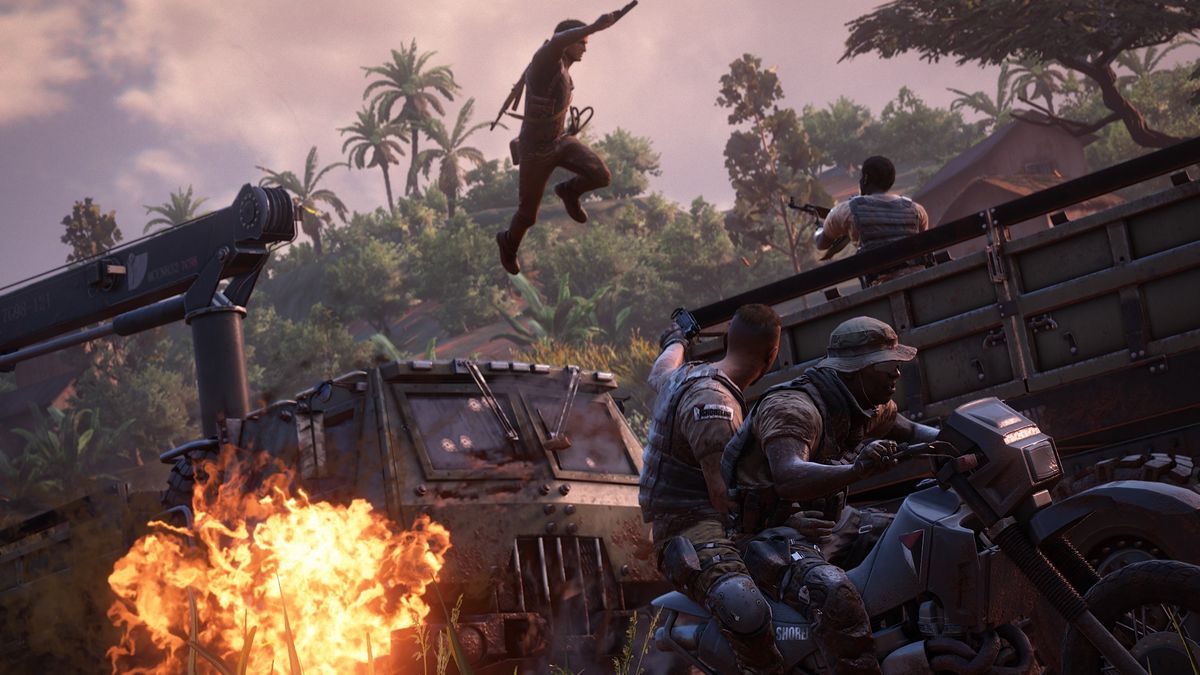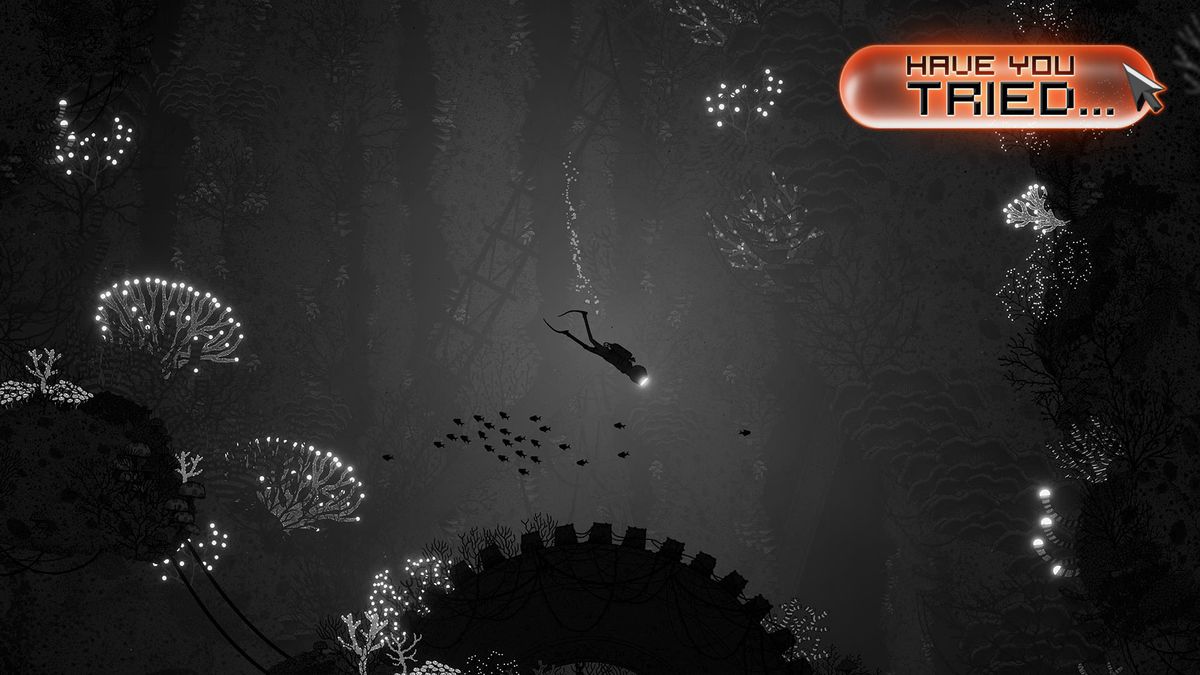“When I was hit with this concept – the seed of Perception – I wasn’t planning on starting something up. But as soon the idea came, I was like – oh man, oh man, oh man. I need to find a way to make this happen.”
Bill Gardner had been sat in class at Bentley, talking about brainstorming. At the end of the lecture, his professor told the class that before they reached their cars that night, each of them would come up with a brilliant idea.
“And sure enough, I’m walking, letting my brain wander, and by the time I put my hand on the car handle, it was like: BOOM, it hit me.”

In February 2014, Bioshock developer Irrational Games closed its doors, laying off all but a handful of staff. Gardner – who’d been at the studio since joining as a QA tester twelve years prior – was amongst the unlucky ones.
I feel I should ask Gardner about that, but it’s a shitty way to start an interview. It’s a shitty thing to ask full stop, actually. My caution’s unwarranted, however; Gardner’s proud of his roots, and, as it turns out, it’s incredibly difficult to talk about his future without also reflecting on his past.
Bumping into Ken Levine in his local Electronics Boutique, Gardner worked his way up from his entry position, attributing much of his success to ‘busting his butt’ and being in the right place at the right time.
By his own admission, there was “a lot to process” when Irrational dissolved, but he took it as an opportunity – one to reconnect with his family, double-down on his master’s degree, and “catch up with life in general”. He tells me that he still hangs out with Levine from time to time. If ill will lingers, I can’t see it.

From the moment the seed was planted, it was “go time”. After pulling together the core ideas, Gardner threw together “a really lame Powerpoint” and started writing and reaching out to people he knew and admired in the industry to form The Deep End Games, a “new” studio boasting an impressive list of collaborators, the team small but rich with experience.
On the surface, it may seem as though the team’s debut offering, Perception, offers little in the way of unique storytelling. After disturbing dreams of an isolated house, and a ton of amateur research, leading lady Cassie – a ballsy, smart-quippin’ sculpture artist from Arizona – hops onto a plane and flies cross-country to check out the game’s setting first-hand. Waiting for her is the abandoned Echo Bluff estate and a mysterious presence called, unsurprisingly, The Presence.
“I think it’s exciting to see so many different faces of horror now,” says Gardner. We briefly detour into a discussion about misspent childhoods watching age-inappropriate horror films, and it’s clear Gardner’s love of horror soaks into his very core. He cites Memento – “that unreliable narrator thing? That stuck with me” – and its concluding twist as a key point of inspiration.
“Horror’s the one genre that has the opportunity to be the least stale,” he adds. “It’s up to the creator to find new ways to shatter those conventions.”
Perception’s twist lies not in what you can see on screen, but what you can’t. Cassie is blind, and the only way you’ll be able to navigate Echo Bluff’s meandering corridors is via fantastical sounding – but nonetheless real – human echolocation. You can see how it works in the trailer above, but the gist is that without an immediate source of sound to define it, there is no visual.
“Obviously, it’s critical to have the inspiration (Gardner cites echolocation expert Daniel Kish (opens in new tab)as one such example), but also to have points of reference. Who the heck knows how a blind person perceives echolocation – it’s impossible to say, right? – and this is a game, a visual medium, so you have to find the right balance.”
“I pulled from a number of different references and inspiration, and came across Schlieren physics (opens in new tab). It’s a strange mix of inspiration and impressionistic interpretation.”
The question of whether or not Perception’s gameplay will be wholly accessible to visually impaired players is an important one for Gardner. He acknowledges that there’s little sense in “pouring your heart and soul” into a game only to limit the number of people who can play it. Consequently, he’s thought long and hard about just how accessible a game – and specifically, Perception – can be for visually-impaired gamers.

“There’s been a lot of people asking [if Perception is] going to be blind-accessible. We’re a small company but that’s definitely high on the list of things I would love to be able to tackle. Our core goal is to make sure that we’re able to capture the vision, but I’d love to be able to raise awareness as for what it feels like to some degree.”
Perception’s Kickstarter realised its $150,000 goal, although the campaign wasn’t without its critics, with some wondering why an experienced team like The Deep End had chosen to debut its project on Kickstarter. So why did Gardner start there?
“The brilliance of Kickstarter is about going directly to your audience. I don’t see it as one eating into the other. As [the industry] continues to grow, both in diversity of titles and scope, I see no reason why we can’t support everything.”
“From the early Irrational days, it was about being very nimble. That was built into our DNA. I think that’s one of the traps a lot of big developers fall into, not being able to pivot like that…”

Gardner pauses, grins, and laughs at himself.
“Wow. That was a really lame, business-y… Wow.” He laughs again and continues. “Somehow, we were able to hang on to that at Irrational, even as we grew. I think that was part of the reason Infinite was a huge game. The productive values are astounding. Not to pat ourselves on the back, but I think there’s a lot of crazy polish there.”
“But there’s also a lot of risky ideas, and those ideas only happen because there were so many iterations, really trying to hone in on something that’s going to resonate and be as impactful as possible.”
“For me, being independent is being able to have that facilitated, streamlined communication, but also being able to look at something and say, okay, what’s the core of what we really need?”

“We’ve talked about other ideas. We could certainly go and talk to publishers and stuff, but this is the most appealing option for us, and – I think – the right way to approach the game.”
As you may well expect from Irrational alumni, the setting – the empty corridors of Echo Bluff – is just as integral to Perception’s story as the protagonist herself. Gardner’s playing his cards close to his chest on this, but his excitement is palpable; Echo Bluff is not just the setting for Cassie’s tale – it is Cassie’s tale.
“If I can be blunt – the house is going to fuck with you.”
“With GTFO (Get The Fuck Out) mode […] there’ll be scripted moments, but the core of playing hide and seek with the Presence? That’s all systemic. It’s about being able to say, I’m going into the house, and this time I have no idea what I’m going to get.”
Which sounds terrifying, naturally. And also very, very promising indeed. Perception is currently targeting a June, 2016 release.
 Game News Video Games Reviews & News
Game News Video Games Reviews & News


